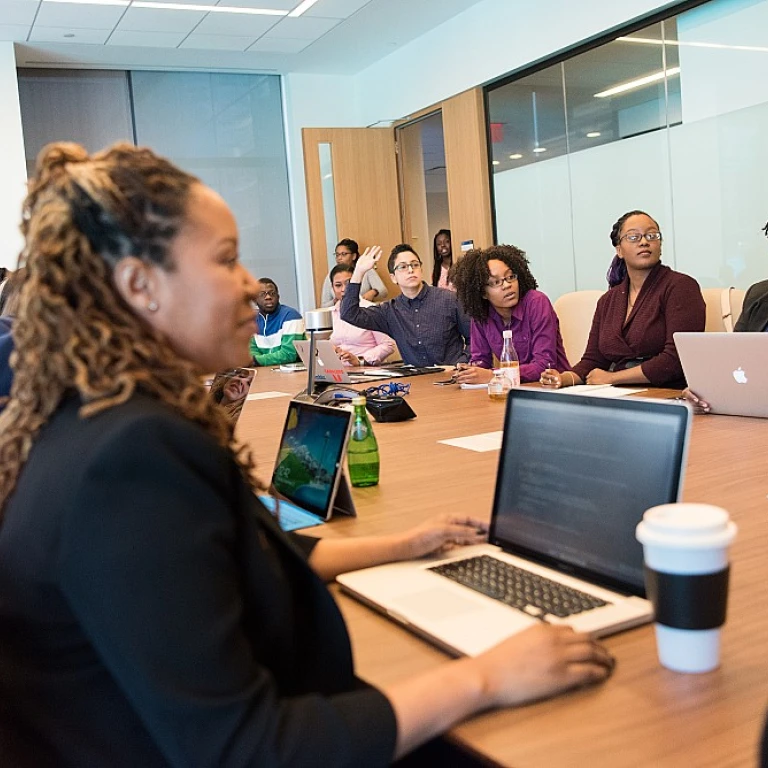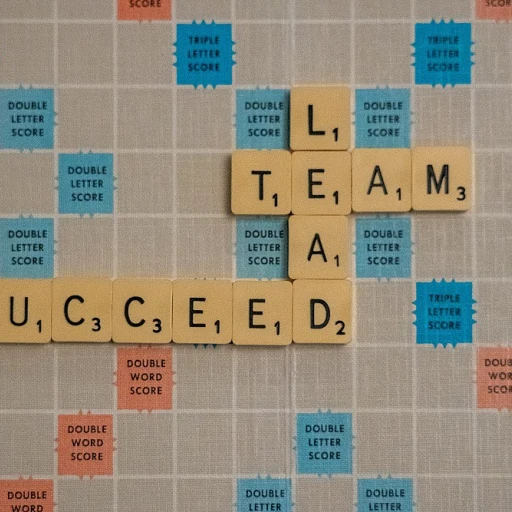Understanding the HR Generalist Role
Diving into the HR Generalist Role
Embarking on the journey to becoming an HR Generalist can seem like a ride full of unknowns, but getting a hold of the job description and soaking in what the role truly involves is the first step. This position often acts as the glue that holds various human resources functions together, ensuring everything from employee relations to performance management runs like a well-oiled machine. Picture an HR Generalist as the jack of all trades in the HR office. You're handling different tasks - whether it's recruiting new talent, conducting training sessions, or diving into data to improve employee engagement. Your day may start with addressing employee complaints and end with strategizing ways to enhance an employee’s work experience.- Employee Relations: This is all about building strong bridges with team members. As someone who's walked miles in HR shoes, you're used to resolving conflicts, maintaining harmony, and ensuring fair treatment across the board.
- Performance Management: This involves setting up systems that ensure employees' work performance aligns with a company's goals. Your sharp eye and experience in providing feedback will come in handy here.
- Training & Development: You’ll find joy in planning training programs that hone employee skills and push the boundaries of growth.
- Diversity & Inclusion: Promoting a diverse and inclusive workplace ensures a variety of perspectives thrive, leading to innovation and an engaged workforce.
- Employment Laws & Compliance: Knowledge of human resource laws and staying up-to-date with the latest regulations is key. You wouldn't want legal hiccups causing any disruption!
Preparing for Common HR Interview Questions
Common Interview Questions for HR Generalists
When you're stepping into the role of an HR Generalist, the interview process can be quite the experience. You need to be ready to tackle a variety of questions that touch on your understanding of human resources, your past experiences, and your approach to employee relations. Let's break down some of the questions you might face and how to handle them with confidence.
Showcasing Your HR Knowledge
Interviewers often start with questions that assess your grasp of HR fundamentals. You might hear, "Can you describe the key responsibilities of an HR Generalist?" This is your chance to demonstrate your understanding of the job description. Highlight your role in employee engagement, performance management, and training programs. A sample answer could be: "As an HR Generalist, I focus on managing employee relations, overseeing performance management systems, and ensuring compliance with employment laws. My role is to support both employees and management in creating a productive work environment."
Experience and Problem Solving
Next, be prepared to discuss your past experiences. Questions like, "Tell us about a time you resolved a conflict between team members," test your problem-solving skills and ability to maintain employee relations. Share a specific example where your communication and management skills made a difference. For instance, "In my previous role, I mediated a conflict between two employees by facilitating a meeting where both parties could express their concerns. This led to a mutual understanding and improved team dynamics."
Understanding Company Culture
HR Generalists are often seen as business partners who help shape the company culture. Expect questions about how you would contribute to diversity inclusion and employee engagement. A question like, "How do you ensure new employees fit into our company culture?" allows you to discuss your strategies for onboarding and training. You might say, "I believe in a thorough onboarding process that not only covers job responsibilities but also immerses new hires in our company values and culture. This helps them feel connected and engaged from day one."
Behavioral Interview Techniques
Behavioral questions are a staple in HR interviews. They assess how you handle real-world situations. Prepare for questions like, "Describe a time when you had to implement a new HR policy." Use the STAR method (Situation, Task, Action, Result) to structure your response. For example, "When tasked with rolling out a new performance review system, I organized training sessions for employees and managers, ensuring everyone understood the process and benefits. This resulted in a smoother transition and increased acceptance of the new system."
By preparing for these questions and practicing your responses, you'll be well-equipped to handle your HR Generalist interview with confidence. Remember, it's not just about answering questions—it's about demonstrating your skills and readiness for the role.
Showcasing Your HR Skills and Competencies
Demonstrating Your HR Expertise
When you're in the hot seat for an HR generalist interview, showcasing your skills is more than just listing them off. It's about weaving your experience into a narrative that highlights your ability to handle the multifaceted nature of the role. HR generalists are the backbone of any company, juggling everything from employee relations to performance management. So, how do you stand out?
Highlighting Key Competencies
Start by focusing on the core skills that every HR generalist should have. Communication is paramount. Whether you're mediating a conflict or conducting training sessions, your ability to convey ideas clearly can make or break employee engagement. Problem-solving skills are equally important, as HR often involves finding solutions to unexpected challenges.
Consider sharing a story from your past work experience where you successfully navigated a tricky situation. Maybe it was implementing a new employee performance system or handling a sensitive employee relations issue. These anecdotes not only illustrate your skills but also your ability to think on your feet.
Understanding the Business
HR is not just about managing people; it's about understanding the business. Familiarize yourself with the company you're interviewing for. This means knowing their values, goals, and how the HR department supports these objectives. Being able to discuss how you can contribute to the company’s success shows that you're not just an HR professional but a strategic business partner.
For example, if the company emphasizes diversity and inclusion, you might discuss your experience with initiatives that promote these values. This demonstrates that you understand the broader impact of HR practices on the company’s culture and performance.
Data-Driven Decisions
In today's data-driven world, HR generalists need to be comfortable with numbers. Whether it's analyzing employee satisfaction surveys or tracking performance metrics, your ability to interpret data can set you apart. Discuss any experience you have with HR analytics, and how you've used data to inform your decisions.
Sample answer: "In my previous role, I used employee feedback data to identify a need for improved training programs. By implementing targeted training, we saw a 20% increase in employee satisfaction scores." This kind of response not only highlights your skills but also shows tangible results.
Continuous Learning
The HR field is always evolving, and staying updated on the latest trends and best practices is crucial. Mention any recent courses or certifications you've completed, such as those related to employment laws or new HR technologies. This shows your commitment to professional growth and your readiness to adapt to changes.
For more insights on preparing for HR interviews, especially for senior roles, check out this comprehensive guide.
The Importance of Cultural Fit in HR Roles
Finding the Right Fit for Your HR Journey
In the world of human resources, it’s not just about matching skills to a job description. The cultural fit plays a massive role in determining if a candidate will thrive in a company. As an HR generalist, understanding and embodying the culture of the company you want to work for can be a game-changer.
During interviews, companies often look for candidates who align with their values and work ethos. This means that beyond your technical skills and experience, your personality, communication style, and even your problem-solving approach can be crucial. Here’s how you can make sure you’re the right fit:
- Research the Company Culture: Before your interview, spend time understanding the company’s mission, values, and work environment. Check their social media, read employee reviews, and if possible, talk to current or former employees. This will help you tailor your responses to align with their culture.
- Reflect on Your Values: Think about what’s important to you in a work environment. Are you someone who thrives in a fast-paced setting, or do you prefer a more laid-back atmosphere? Knowing your preferences will help you determine if a company is the right fit for you.
- Showcase Your Adaptability: HR roles often require flexibility and the ability to work with diverse teams. Highlight your experience in managing employee relations, diversity inclusion, and performance management. Share stories that demonstrate your adaptability and how you’ve successfully worked in different environments.
- Ask the Right Questions: During the interview, don’t shy away from asking questions that will give you insight into the company’s culture. Inquire about team dynamics, management styles, and employee engagement initiatives. This not only shows your interest but also helps you gauge if the company is a place where you’ll be happy.
Understanding the Employer's Perspective
Employers are keen on hiring individuals who will not only excel in their role but also contribute positively to the team and company culture. They look for candidates who can seamlessly integrate into their existing setup while bringing fresh ideas and perspectives. Remember, your interview is as much about you evaluating the company as it is about them evaluating you.
For HR generalists, understanding cultural fit is a two-way street. It involves assessing if you can contribute to the company’s goals while ensuring that the company supports your professional growth and personal values. This mutual fit can lead to a fulfilling and successful career in human resources.
Navigating Behavioral Interview Techniques
Mastering Behavioral Interview Techniques
In the world of HR, behavioral interviews are a staple, designed to assess how candidates have handled situations in the past. This approach helps predict future behavior and performance in the HR generalist role. It's all about understanding your past experiences and how they align with the company’s needs.
Behavioral questions often start with phrases like, "Tell me about a time when..." or "Give an example of..." These questions dig into your experience and skills, requiring you to share specific examples. Here’s how you can ace these questions:
- Prepare Your Stories: Reflect on your past roles and identify key moments that highlight your skills in employee relations, performance management, or diversity inclusion. These stories should demonstrate your problem-solving abilities and communication skills.
- Use the STAR Method: Structure your answers using the Situation, Task, Action, and Result format. This method helps you organize your thoughts and deliver clear, concise answers. For instance, if asked about a time you improved employee engagement, describe the situation, your role, the actions you took, and the positive outcome.
- Be Honest and Reflective: Authenticity is key. If you faced challenges, don’t shy away from discussing them. Instead, focus on what you learned and how it made you a better HR professional. This shows your ability to grow and adapt, which is crucial in any HR role.
Behavioral interviews are not just about assessing your past; they’re about understanding how you’ll fit into the team and contribute to the company’s goals. Remember, your stories should reflect not only your skills but also your alignment with the company’s values and culture.
For more insights on how to tackle HR interview questions effectively, consider exploring resources that dive into different HR roles and interview strategies.



